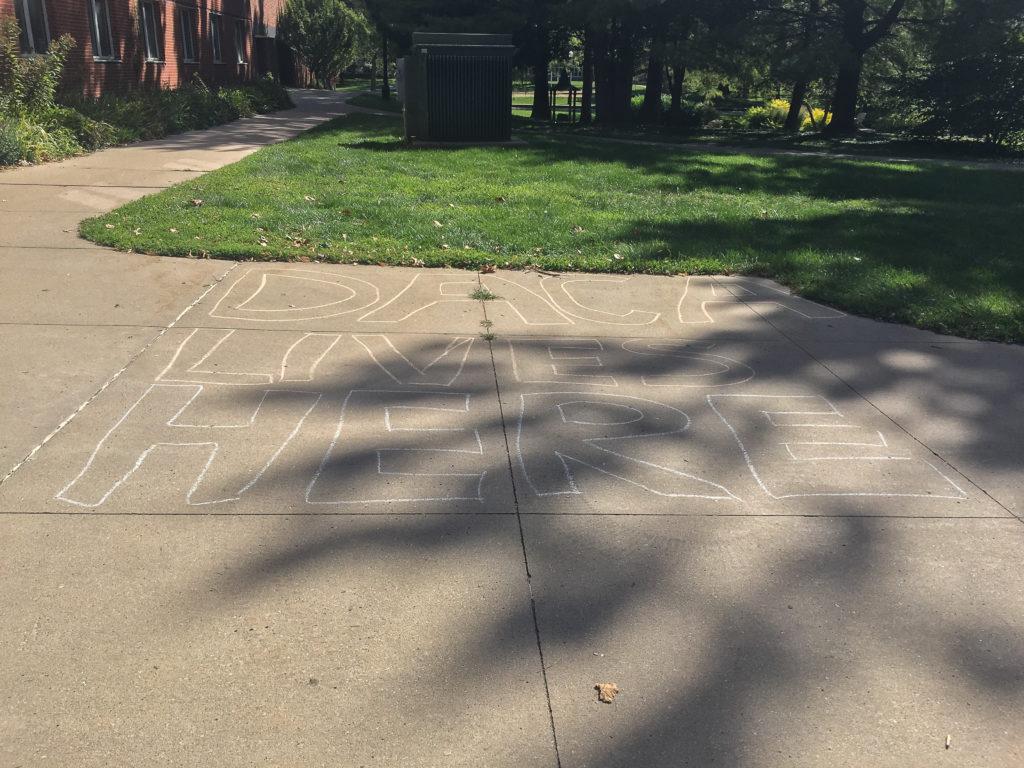By Alice Herman ’17
hermanal@grinnell.edu
This Tuesday, the Trump Administration called to terminate the Deferred Action for Childhood Arrivals (DACA) program, an immigration policy set in place by the Obama administration that protected young people who had entered the U.S. before the age of 16 from imminent deportation. Trump Administration officials said that the program would be “phased out,” meaning that work permits, driver’s licenses and state IDs would remain functional until they expire, and for the next six months any individuals enrolled in the DACA program will remain protected from deportation.
In a special campus memo addressed to the Grinnell community, President Kington acknowledged the termination of DACA and wrote that “the College is dedicated to unequivocally supporting our students who might feel vulnerable for themselves or family and friends as a result of the termination of the DACA program.” The memo encouraged students with concerns or questions for themselves or others to contact the offices of International Student Affairs, Intercultural Affairs, the Center for Center for Religion, Spirituality, and Social Justice (CRSSJ) or Student Health and Counseling Services (SHACS).
Associate Dean and Director of International Student Affairs Karen Edwards emphasized that DACA protects other people in addition to students.
“I think it’s fairly common that we think about DACA impacting college student-aged [people], but many DACA recipients are recent graduates and they’re in the workforce, so we could easily have employees here, service providers in our local community. DACA could impact currently enrolled [students] but it is so much broader.”

Edwards referenced the DACA protection that grants work permits to recipients, and noted that while, according to the most recent announcements, this protection would disappear as individuals’ permits expired, the College could potentially replace work-study with individual grants.
“An institution could say … ‘if you lose financial aid, we’ll as a private institution have the ability to meet that gap with grant aid.’ You have to think not just budgetarily but from a fairness and a social justice perspective,” Edwards said. This measure has not been taken, but, according to Edwards, it represents one of many ways in which college campuses can provide support to community members vulnerable to the termination of DACA.
Edwards recommended that students with questions regarding the end of the DACA program connect with one of the resources noted in this week’s Special Campus Memo, and indicated that the College could direct people previously protected by DACA to legal counsel. “Having good referral mechanisms for students to get legal advice from attorneys is very important. We hope that students feel confident coming here. I’m subject to FERPA and I practice privacy, and I do a lot of referrals,” Edwards said.
President Kington also affirmed the College’s support for individuals threatened by the Trump administration’s termination of the DACA program in an interview with The S&B.
“If students, for example, are not eligible for financial aid based on their status, we’ll provide that support. So our apparatus of support has not changed and won’t change,” Kington said. He emphasized that while the College will work to meet the needs of individuals through, for example, the use of grant money to cover work-study, the College does not anticipate any major policy changes following the federal announcement this week.
“I think most schools like Grinnell really had supportive policies and it’s the public schools, really the large public schools where this is a much bigger issue. … We have, for example, private resources that can make up for public resources and because the numbers, too, are just different in our institution. All that’s to say, I don’t think we’ve had to change any policy or practice because we were already committed to supporting these students, and we will continue to support these students,” Kington said.
One recent alum, Channel Turbides ’17 who now works at a nonprofit organization addressing systemic barriers to low-income students’ graduation from college, said that she considered the College’s response to the DACA announcement inadequate. In a message to The S&B, Turbides wrote that she “cannot live with the thought of Grinnell not doing its best to serve students in need.…Last year, a friend shared with me their struggles on the road to finding support at Grinnell as a DACAmented student, and I was heartbroken to hear they had such little help available to them on campus at the time.”
Turbides took her concern to an online network of Grinnell alumni. “With the help of other alums who reacted to my post, we will edit the original statement put out by Grinnell to include our perspectives.”



























































